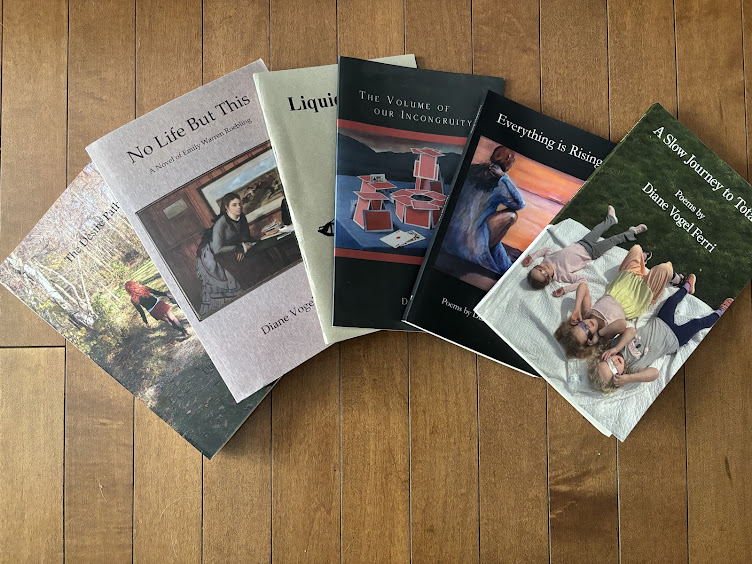My Memories of Tamir Rice': A Personal Essay
Posted By Diane Ferri on Mon, Nov 16, 2015 at 10:08 am

As I slowly processed the information that he was dead and had been shot by a police officer in a neighborhood park, I felt a deep and disturbing indignation. Someone was to blame for the killing of this child—and it was not the child. I was sure that those who blamed this 12-year-old did not know him.
I remember a tall and handsome boy. Tamir looked older than his years but he was emotionally immature for his age. The thing about Tamir was that even if he gave you a hard time you still liked him. I don’t remember the tough days as much as that smile I frequently see on the news. He had a keen sense of humor and I sensed the capacity in him to achieve and even be a leader if life went his way—which it didn’t. What a waste.
Tamir was in my special-needs classroom, but, unlike most of my students, Tamir did not have a learning disability. He did well in math on the days that he chose to participate. On some days he wanted to answer every question and would become frustrated if he was not allowed to do so. He was placed in my room, in part, for the extra attention that he craved, for the attention he could not get in a larger classroom and, on certain days, could not do without.
Tamir, in his best moments, had a wonderful personality. He could be charming and funny. I believe his childhood had been a confusing one. Tamir enjoyed attention and, like some other children I have known, negative attention can sometimes be as stimulating as positive attention. So you can imagine the attention he was getting in the park that November day as he wielded an airsoft pellet gun, pointing it at passersby and other kids. The orange cap on the tip of the barrel that was supposed to indicate it was a fake was missing, so it appeared to be a real gun.
He’d been playing in the area of the recreation center gazebo when one of those passersby called 911. We later learned the caller had stated that the gunman was probably a juvenile and it was probably not a real gun. The dispatcher never relayed that part of the message to the police. We will never know if those words would have changed the deplorable outcome of that day.
What we know for sure about that day was caught on a park security camera. We saw a police vehicle drive up within feet of the boy and within two seconds he fell to the ground. There was no audio to tell us whether he had been asked repeatedly to drop the gun before he was shot (witnesses said they did not hear that). We did not see the police officer use a taser to get the child to drop the gun, or get assistance in any other way—we just saw the 12-year-old’s life end at that moment, never to use those leadership skills or engaging personality again.
Inevitably I feel compassion for the wounded, the underdogs, the young men whose lives have been taken, and for the families who will never stop grieving for them.
In personal conversations, most people I spoke with blamed the black parents for teaching their child disrespect for authority—specifically white police. How do you know that, I wondered? Why is that the assumption? Would you be saying that if it was a white child?
Tamir’s academic and emotional development was most likely affected by transience. Tamir left our care abruptly right before the end of that school year. Many children in low-income areas are constantly on the move from school to school, neighborhood to neighborhood. They lose their apartments for various reasons and move on to another dwelling or move in with a relative—often in a different school district. The work educators do with a child is often interrupted and negated at another school. The principal, Tamir’s mother, and other teachers, as well as myself, spent many heartfelt hours and much energy trying to meet Tamir’s individual needs and help him be successful in school.
A generation ago it was acceptable for children to have toy guns to play cowboys and Indians. It’s a shame that toy companies have created more realistic weapons and that so much focus is on guns in our society. Very few television shows or movies exist without guns. What else would we expect a young boy to want? It was reported later by an FBI agent who happened by that while lying on the ground wounded, Tamir asked for his gun back. Maybe we, the collective American society, are the ones to blame for constantly glorifying all types of guns and emphasizing the rights of everyone to own one.
To me, Tamir Rice is not a news item or a conversation starter. He was an unforgettable student I taught and cared for during a brief period in time. He was a kid who struggled with being moved from school to school. He was a child who needed a significant amount of attention. Like many inner city children, Tamir had probably seen and experienced more than his 12-year-old brain could process. On November 22, 2014, he was simply an innocent soul who just wanted to have a good time as most children do.
What I imagine from knowing Tamir was that he was having great fun that day. He was a child pretending he had a real gun. He was a young boy who was getting the attention he craved. And he will never know the attention he received after that fateful day.

